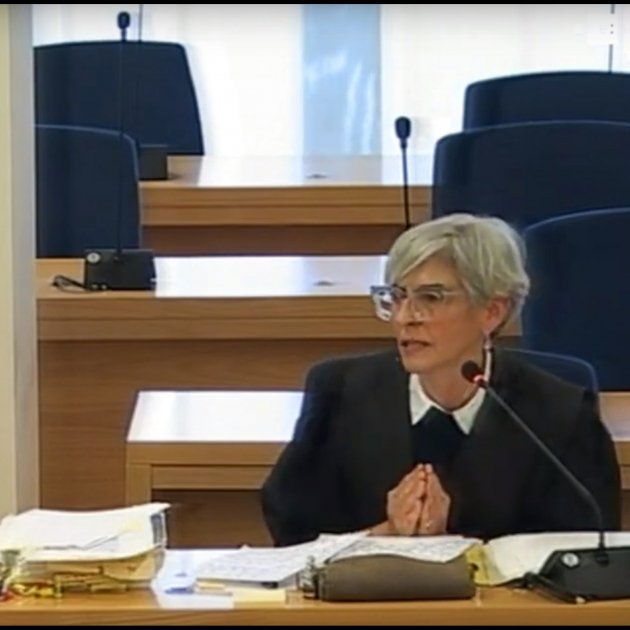Start of the third week of Spain's rebellion and sedition trial of Mossos d'Esquadra police leaders in connection with the 2017 Catalan independence referendum, and the police-versus-police pattern of week two continues: Civil Guard accusations, countered by defence questioning and opposing evidence from the Catalan Mossos force.
This Monday has seen Olga Tubau, defence lawyer for former Mossos chief Josep Lluís Trapero, cross-examining Civil Guard lieutenant colonel Daniel Baena - the officer who was in charge of the years-long police investigation into the Catalan independence process. If Baena's main testimony at the start of the day was characterised by long monologues, often irrelevant to the question posed by the prosecutor, the defence asked him more specific questions directly aimed at dismantling his thesis of a conspiracy between the Mossos and Carlos Puigdemont's Catalan government.
Tubau dismantled the allegation which Baena had made under prosecution questioning of a secret meeting between Trapero and Carles Puigdemont. The basis of the accusation was an email allegedly sent to Puigdemont - which Baena had sighted because the Civil Guard was monitoring the Catalan president's correspondence - but it is not clear whether Trapero received it, and nor was it clear that a meeting was actually held or indeed, that, if it was, the Mossos chief was present.
Daniel Baena was in an inspired mood when he testified, sounding more like a expert witness than a police officer in the stand. Few questions were asked and the responses were very long and out of context, until the point where the Civil Guard officer eventually revealed the alleged secret meeting between Puigdemont and Trapero, prompting a smile from the prosecutor Pedro Rubira that raised all sorts of doubts.
The lieutenant colonel explained how Puigdemont's emails were being read by the Civil Guard, and as revealed in one such alleged message, the president used this meeting to thank the Mossos chief for the work done by his Catalan force in the 1st October referendum. Work which, according to the prosecution, deliberately allowed the referendum to go ahead.
The prosecution asked for Puigdemont's email to be admitted as evidence, the defence objected once again and the court upheld the objection - the alleged document had supposedly been in the hands of the prosecution for months, so why had they not introduced it as evidence at the proper time? And minutes later, Olga Tubau succeeded in dismantling the alleged conspiratorial meeting with which Baena was trying to point the finger at Trapero.
On 20th September
Tubau slowly took Baena's testimony apart. One of the elements was his argument that, at the key protest outside the Catalan economy ministry on 20th September 2017, the Mossos did not set up a security perimeter even though the Civil Guard requested it.
Trapero could not avoid remarking to his lawyer, seated beside him, that the police were requesting perimeters everywhere, both where they were needed and where they weren't, both where there were large numbers of people gathered and where there weren't. The clarification effectively cancelled out an argument that was central to the Mossos leadership's alleged offence of sedition on 20th September.
As part of the same section of the testimony, under Olga Tubau's questioning, Daniel Baena also made a statement that may be key evidence for the defence of Superintendant Teresa Laplana, whose accusation of sedition relates particularly to her leadership role in the Mossos' actions that day. "The individual conduct of the Mossos d'Esquadra did not constitute a crime of sedition," affirmed Baena.
